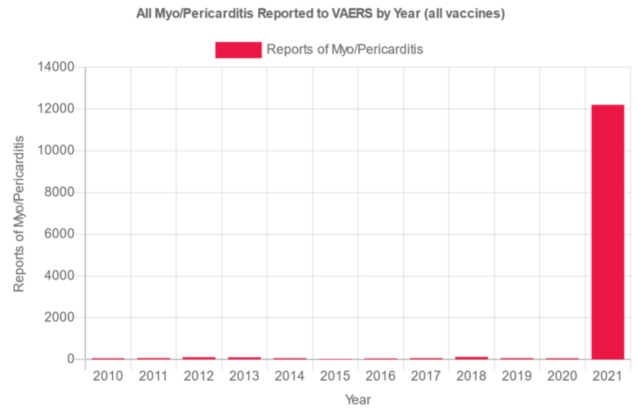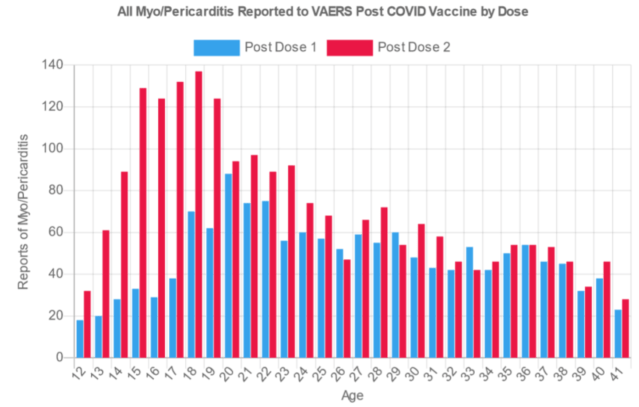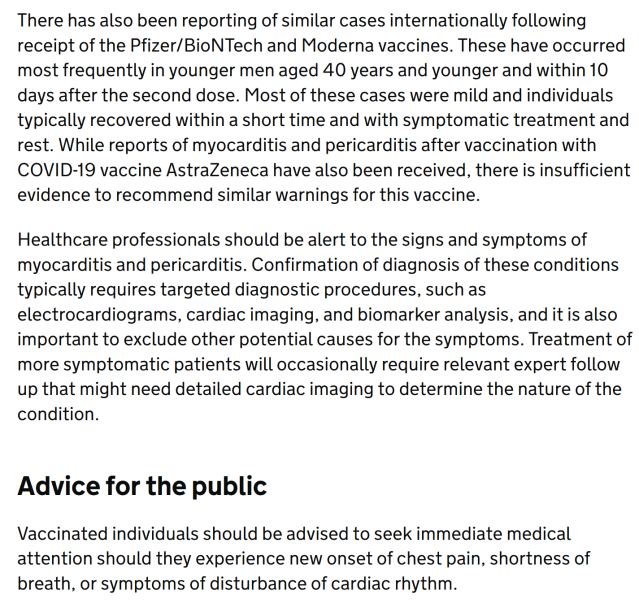
Official figures show there has been a 67% increase compared to the historical average in the number of people aged 15 to 44 suffering heart attacks, cardiac arrest, myocarditis, stroke, and other cardiovascular diseases since this age group was first offered the Covid-19 injection in Scotland.
And further analysis shows this issue is actually getting worse, with the numbers for 2022 so far revealing a 73% increase against the historical average.

Meanwhile, data published by the Office for National Statistics show that between January 2021 and January 2022, double vaccinated 18 to 39-year-olds in England were on average 92% more likely to die than unvaccinated young adults of the same age.
This is either a terrible coincidence or the smoking gun that proves the damage the Covid-19 injections have done and are doing to the population.
It is now well known that a possible severe consequence of getting the Covid-19 injection is that one may develop either myocarditis or pericarditis, or in some cases both. We know this because the authorities have had to admit it occurs, although as expected have downplayed it as extremely rare.
This probably means it is much more common than people realise.
In simple terms, myocarditis is an autoimmune disease that causes inflammation of the heart muscle. This inflammation enlarges and weakens the heart, creates scar tissue and forces it to work harder to circulate blood and oxygen throughout the body. (source)
Whilst Pericarditis is an autoimmune disease causing inflammation of the pericardium, a sac-like structure with two thin layers of tissue that surround the heart to hold it in place and help it work.
Here’s how both autoimmune diseases have affected people in the USA according to the Vaccine Adverse Event Reporting System (VAERS), where just 1-10% of adverse reactions are actually reported [2SG: as per large Harvard study reporting to VAERS was discovered to be under 1%.] –

Here’s how those unprecedented amounts of cases of myo/pericarditis reported to VAERS have been distributed by age –

As you can clearly see, the two autoimmune conditions are much more likely to occur in younger age groups, and the UK Medicine Regulator has admitted this is the case –

You may have noticed how the UK Medicine Regulator, the MHRA, stated how “most of these cases [of Myocarditis] were mild”. So nothing to worry about then? Unfortunately not.
A mild case of myocarditis or pericarditis does not exist. You only get one heart, and it is incapable of regenerating/ repairing once damage has been done. Ongoing cardiovascular medication or even a heart transplant may be needed.
Overall, myocarditis which can cause dilated cardiomyopathy, is thought to account for up to 45 percent of heart transplants in the U.S. today. (source)
Myocarditis can permanently damage your heart muscle, possibly causing:
- Heart failure. Untreated, myocarditis can damage your heart’s muscle so that it can’t pump blood effectively. In severe cases, myocarditis-related heart failure may require a ventricular assist device or a heart transplant.
- Heart attack or stroke. If your heart’s muscle is injured and can’t pump blood, the blood that collects in your heart can form clots. If a clot blocks one of your heart’s arteries, you can have a heart attack. If a blood clot in your heart travels to an artery leading to your brain, you can have a stroke.
[2SG: Myocarditis decreases lifespan for all sufferers, and in many cases significantly decreases lifespan; a child’s life expectancy with myocarditis is around 10 years from diagnosis.]
With all that being said the following data that has been published by Public Health Scotland should come as no surprise.






